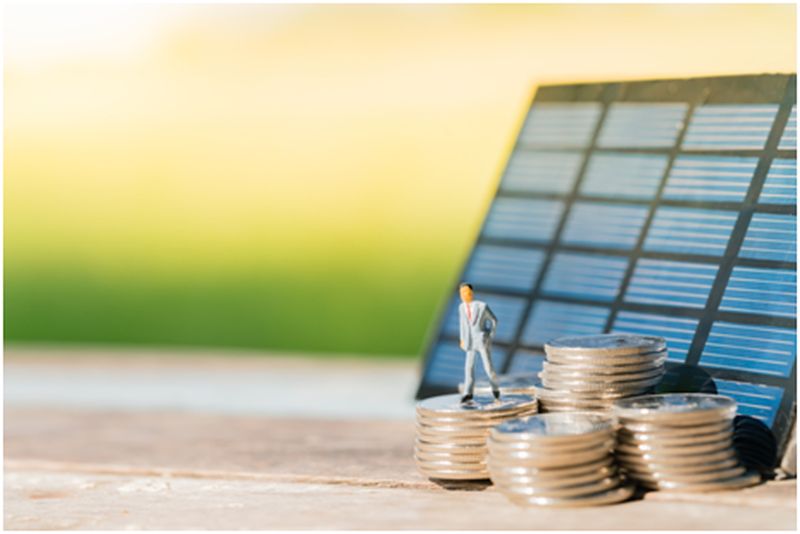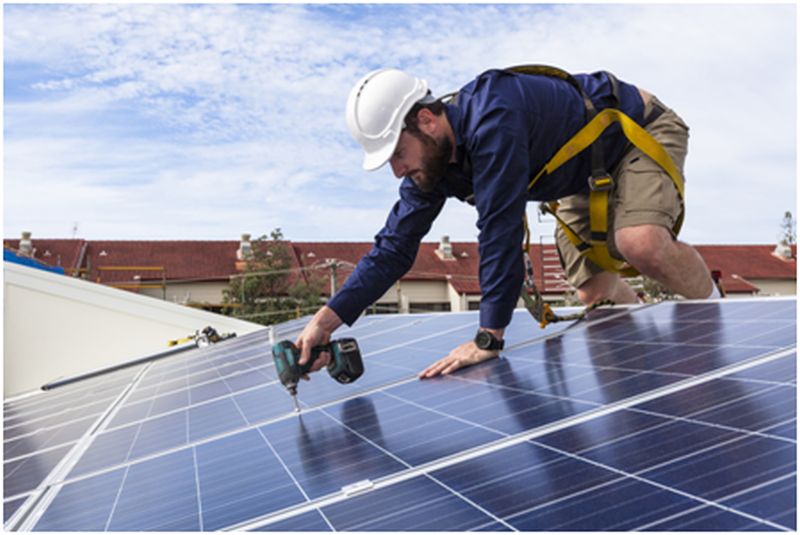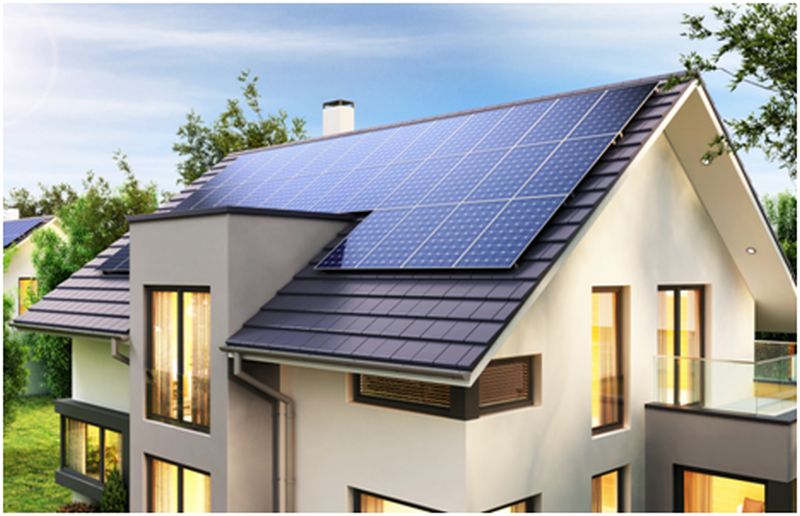Going solar is undeniably a smart decision. Installing a residential solar system in your home can save you up to $14,000 on electricity over the next two decades, all while helping to reduce your carbon footprint and lessening society’s dependence on fossil fuels. But is it worth the upfront investment? When you consider that the cost of solar panels can be offset by tax credits and other incentives, you’ll see that the answer is a clear yes.
How Much Are Solar Panels?
The average residential solar system costs between $15,000 and $25,000, but tax credits, rebates and other incentives can significantly offset the upfront cost.
To determine whether or not investing in a whole-home solar system is the right move for your residence, you have to start with a realistic price-out. The cost of purchasing and installing complete solar panel kits varies widely depending on where you live, the size of your home, your electricity needs and the system you choose. These systems are priced by the watt, which means the amount of energy you’ll need to power your home will play a big role in how much it costs.
There is no way to know exactly how much a new system will run you without getting a few solar quotes from suppliers. However, looking at average costs can provide a ballpark range to help you determine if it’s something worth pursuing in your home or business. According to the Center for Sustainable Energy (CSE), the average cost of a solar panel system is between $3 and $5 per watt, with the average residential system coming in at about 5,000 watts. Therefore, the average system would cost somewhere between $15,000 and $25,000 out of pocket.
How to Save on Solar Panels
 Don’t let sticker shock deter you from investing in solar energy. While upfront costs can be high, there are plenty of great ways to lower the cost. Here are a few of the best.
Don’t let sticker shock deter you from investing in solar energy. While upfront costs can be high, there are plenty of great ways to lower the cost. Here are a few of the best.
1. Buy Direct from the Distributor
Did you know that you can buy solar panels directly from the distributor, with no middleman? This eliminates some of the markup you might experience if you have your installer purchase the equipment for you. These days, you’ll find a huge variety of quality solar panels for sale online, so you get the most competitive pricing. It’s also possible to self-install your panels, which could save you several thousand dollars. However, this route takes a fair amount of planning and hard work, so it may not be right for everyone.
2. Factor in Your Incentives
As we recognize the importance of switching to sustainable, renewable energy sources, our lawmakers have created a variety of incentives to get individuals and businesses to go solar. Think of these incentives as free money for helping to create a cleaner, more sustainable world. They are typically offered in the form of tax credits, which equate to dollar-for-dollar savings on your tax bill. Here are the key incentives to know when pricing out your solar system:
· Federal Tax Credit
The most valuable incentive is the Solar Investment Tax Credit (ITC) which was first offered via the Energy Policy Act of 2005. This credit provides homeowners with a significant one-time savings when they install a residential solar system in their home. Individuals who install a solar power system by 2022 will get a 26 percent tax credit on total project costs, including equipment, permits and installation. In other words, if you purchase a $10,000 system, you’ll get $2,600 knocked off your tax bill.
· State Incentives
In addition to federal tax credits, those who invest in solar energy will likely also qualify for a variety of savings offered by their state. In California, Texas and Oregon, for example, residents can take advantage of over 100 unique incentives that can help offset the initial upfront investment of renewable energy systems. The Database of State Incentives for Renewables & Efficiency can help you determine what kinds of savings you will receive depending on where you live.
· Rebates
In addition to state and federal tax credits, you may be able to recoup some money on your investment with local utility rebates. In essence, these rebates allow you to earn some money back based on how much energy your system generates. Check with your local utility company or government agency to determine if these rebates apply to you.
3. Consider Staying on the Grid
Of course, one of the biggest benefits of switching to solar energy is that you will reduce — or, in some cases, completely eliminate — your reliance on the local utility grid. However, if you have access to the grid, you can save big because you won’t need to buy the batteries required for an off-grid system. Grid-tied homeowners still save a ton because they’re mostly generating their own power instead of buying it from the utility. With this option, the energy generated is stored in the utility grid so it can be distributed to other people in the area. This earns the homeowner a credit they can use on their own energy. While this isn’t an option for all properties, it’s definitely a smart way to go if you have grid access.
4. Shop Around

In the past few years, as consumers have started to see the value of going solar, the market has exploded, forcing competition and lowering prices. Be sure to consider all the different solar panels for sale as you’re shopping. Just like anything else you buy, it pays to compare pricing on units and get a variety of quotes. When comparing companies, see which ones offer lifetime support, warranties, etc. If you plan to finance your system, an array of financing options are available with competitive APR rates.
The cost of a solar panel system varies widely based on many factors, and the only way to get an accurate estimate is to connect with suppliers and get quotes. As for whether or not it’s worth the cost, that also depends on your unique scenario. For most people and businesses, though, installing a solar power system is worth the upfront investment because it can save you money in the long run.
Article Submitted By Community Writer


